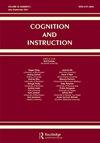The Nature and Quality of Algebra Instruction: Using a Content-Focused Observation Tool as a Lens for Understanding and Improving Instructional Practice
IF 2.6
1区 心理学
Q2 PSYCHOLOGY, EDUCATIONAL
引用次数: 9
Abstract
Abstract Algebra is a key course in the high school mathematics sequence. Despite its prominence, large-scale examinations of algebra instruction are rare and it is not clear whether and how instructional practices that support students’ learning of algebra content manifest in classroom instruction. Drawing on video from 108 ninth-grade algebra lessons from 5 districts recorded as part of the Measures of Effective Teaching (MET) Project, I describe instruction using scores from a newly developed, algebra-focused observation tool to ground the description of instructional practice in the content being taught. I present the range of instructional formats and the nature and quality of algebra-focused instructional features related to the teaching of procedures and to the ways in which teachers leverage connections to support students’ algebra learning. To illustrate these descriptive results, I present case studies of 2 lessons: 1 rated typical and 1 rated high-quality. I find that although the majority of lessons in the sample follow traditional formats, specific instructional features that benefit student learning in algebra are present to a modest degree across lessons, though not often at high levels of quality. The case lessons demonstrate both glimmers of promise and missed opportunities to engage in instruction that benefits student learning of algebra. I discuss the implications of these results for improving the quality of algebra teaching and argue for the affordances of a content-focused observation tool as a lens for instructional improvement efforts.代数教学的本质和质量:以内容为中心的观察工具为视角理解和改进教学实践
摘要代数是高中数学序列中的一门重要课程。尽管它很突出,但大规模的代数教学考试很少,而且尚不清楚支持学生学习代数内容的教学实践是否以及如何在课堂教学中体现出来。根据来自5个地区的108节九年级代数课的视频,作为有效教学措施(MET)项目的一部分,我描述了使用新开发的以代数为重点的观察工具的分数进行教学,以在教学内容中描述教学实践。我介绍了教学形式的范围以及以代数为重点的教学特征的性质和质量,这些教学特征与程序教学以及教师利用联系支持学生代数学习的方式有关。为了说明这些描述性结果,我对2节课进行了案例研究:1节课被评为典型课,1节课评为高质量课。我发现,尽管样本中的大多数课程都遵循传统的形式,但有利于学生学习代数的特定教学特征在各个课程中都存在,尽管质量并不高。案例课程展示了参与有利于学生学习代数的教学的一线希望和错失的机会。我讨论了这些结果对提高代数教学质量的影响,并主张将以内容为中心的观察工具作为教学改进工作的透镜。
本文章由计算机程序翻译,如有差异,请以英文原文为准。
求助全文
约1分钟内获得全文
求助全文
来源期刊

Cognition and Instruction
Multiple-
CiteScore
7.90
自引率
12.10%
发文量
22
期刊介绍:
Among education journals, Cognition and Instruction"s distinctive niche is rigorous study of foundational issues concerning the mental, socio-cultural, and mediational processes and conditions of learning and intellectual competence. For these purposes, both “cognition” and “instruction” must be interpreted broadly. The journal preferentially attends to the “how” of learning and intellectual practices. A balance of well-reasoned theory and careful and reflective empirical technique is typical.
 求助内容:
求助内容: 应助结果提醒方式:
应助结果提醒方式:


